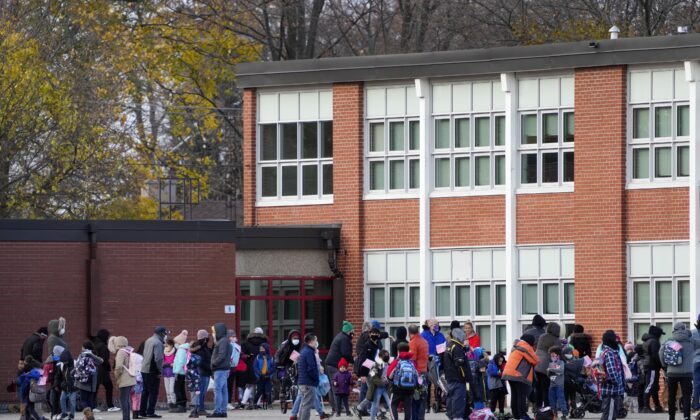Commentary
Imagine you are about to undergo major heart surgery. Before the operation starts, you decide to look into your surgeon’s background. You are initially impressed to find out that your surgeon had a perfect 100 percent average throughout medical school. However, your confidence wavers when you discover that every student at the same medical school also received perfect grades. This scenario illustrates the issue of “grade inflation,” where the accomplishments of even the top students come into question. While grade inflation is rare in medical schools, it is becoming a growing problem in high schools.
In Ontario, grade inflation is so widespread that the University of Waterloo’s engineering program adjusts student applications based on the school’s grading standards. This adjustment factor acknowledges that a 95 percent average from one school may not be equivalent to an 85 percent average from another school. Other provinces, like British Columbia, are also experiencing grade inflation, with entrance grades at institutions like the University of British Columbia rising significantly over the past two decades.
Unfortunately, some schools have resorted to grade inflation to compensate for other shortcomings. For instance, a school board in Ontario awarded perfect marks to all students in certain courses due to a lack of a permanent teacher. This practice of inflating grades to cover up deficiencies in instruction reflects poorly on the academic standards in many Canadian schools.
Evidence suggests that student academic performance is actually declining, despite the rise in high school grades. Results from the Programme for International Assessment (PISA) show a decline in math scores across Canada over the years. This discrepancy highlights the disconnect between inflated grades and actual academic proficiency.
Grade inflation not only misleads students about their abilities but also hinders their preparedness for post-secondary education. Research indicates that students with inflated high school grades often struggle with a significant drop in university performance. Additionally, legitimate achievements of academically successful students are overshadowed by the inflated grades of their peers, undermining the value of their accomplishments.
To ensure the integrity of academic assessments, it is crucial to address the issue of grade inflation. Students deserve fair and accurate evaluations that reflect their true abilities. Just as we would question the credibility of a surgeon’s qualifications in a scenario of widespread grade inflation, we should also scrutinize the value of diplomas from schools where grade inflation is prevalent.
Michael Zwaagstra is a public high school teacher and a senior fellow with the Fraser Institute.
Views expressed in this article are opinions of the author and do not necessarily reflect the views of The Epoch Times.
Can you please rewrite this sentence for me?
Source link





